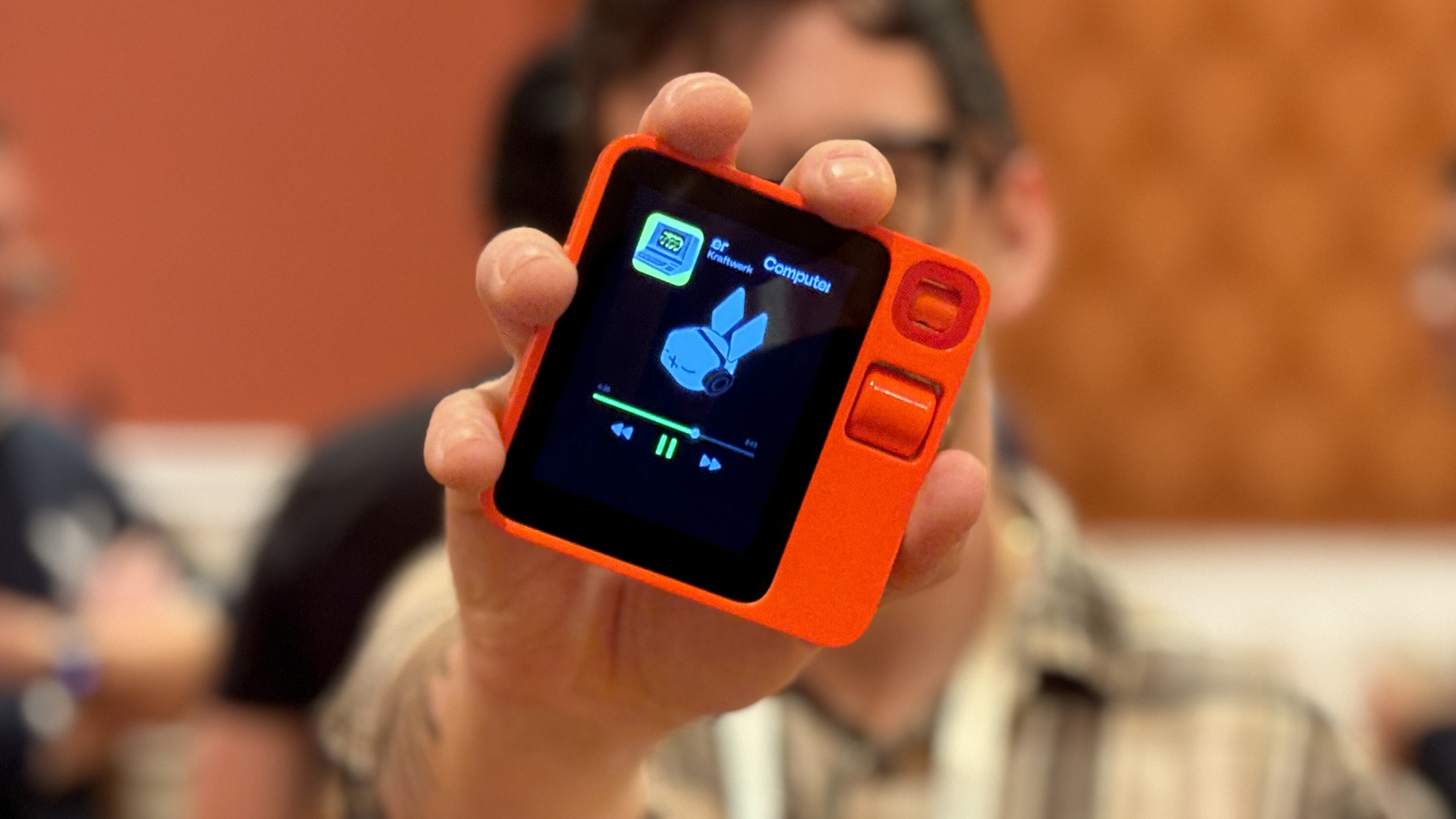
The Rabbit R1 is not built to replace your smartphone. Instead, it's meant to be something different — a small, pocketable AI assistant that even the company is figuring out alongside us all. But the goal is a simple and admirable one: smartphones are the perfect device for time wasting, but with this AI-centric handheld, you will save time.
Don’t think of the Rabbit R1 as simply a smart assistant in a box. This isn’t your average Siri, nor is it constrained or prone to hallucination like ChatGPT. Rabbit has paired your standard Large Language Model (LLM) with a breakthrough innovation called Large Action Model (LAM); they work in tandem to not just understand complex requests, but take action on them.
If the company can stick the landing, the Rabbit R1 could be a true personal assistant unlike anything you’ve seen before. Here are some first impression of the Rabbit R1 after I spent some time with the device during CES 2024.
Rabbit R1: Pricing and availability
You can pick up this one-of-a-kind device for just $199 — far less than what you see from the likes of the Humane AI pin ($699) and the Ray-Ban Meta smart glasses ($299). This puts AI-driven hardware at a price that can easily make it an impulse purchase for some people.
As for availability, the official word is “Easter,” with pre-orders available as o this writing. But Rabbit founder and CEO Jesse Lyu did confirm a more specific target of sending the first devices to consumers by March 31.
Rabbit R1: Design, Display & Audio
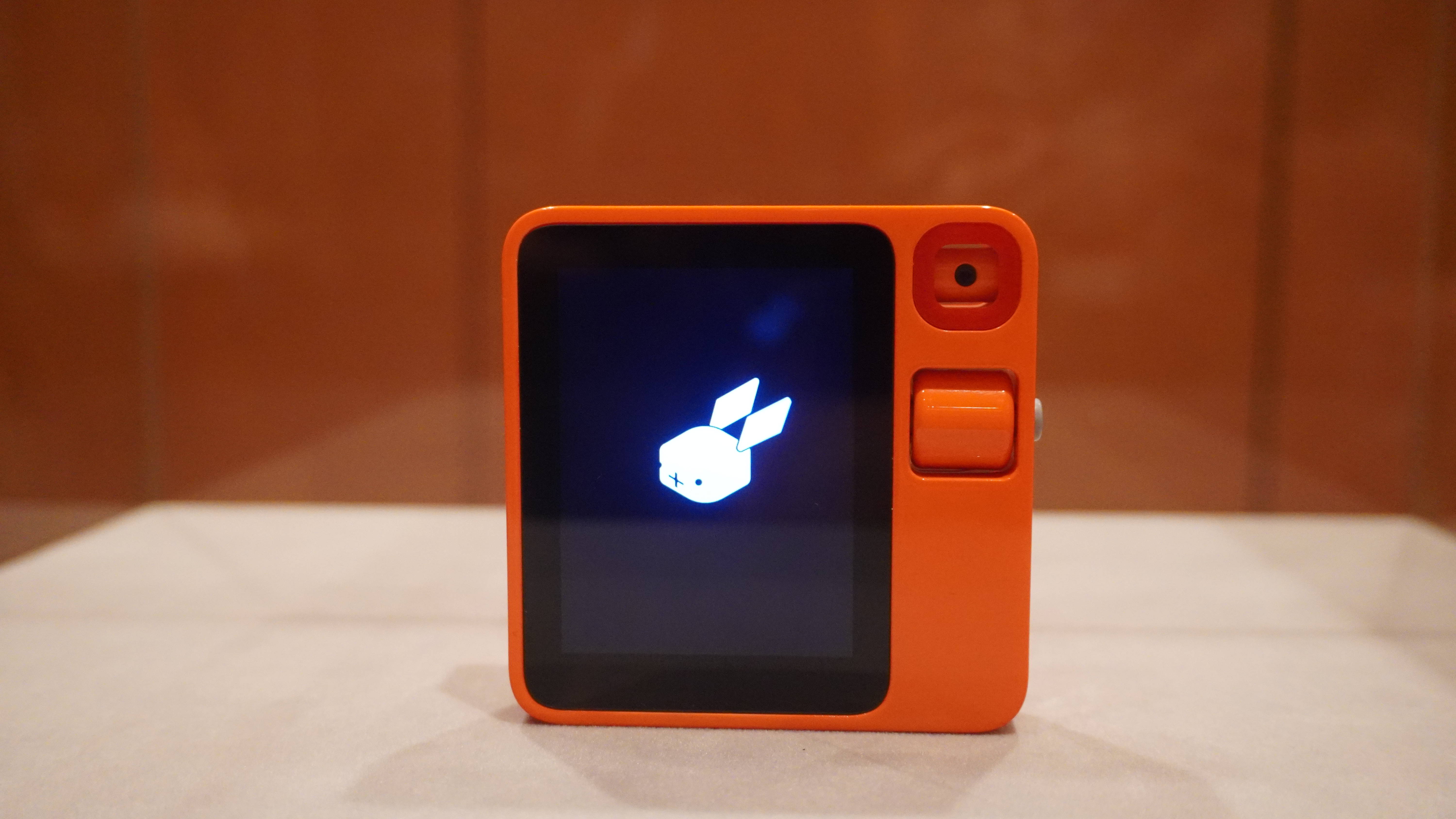
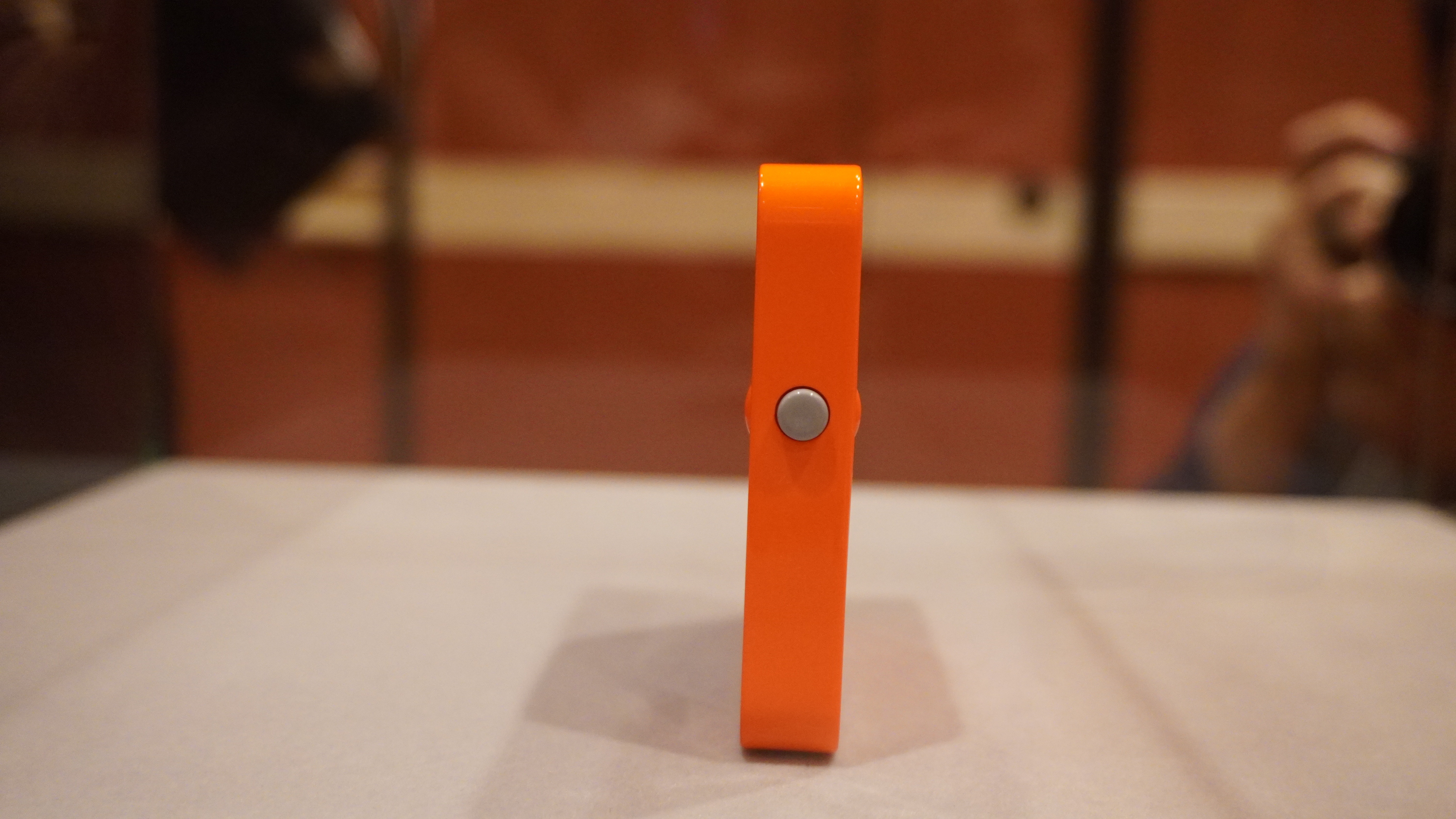

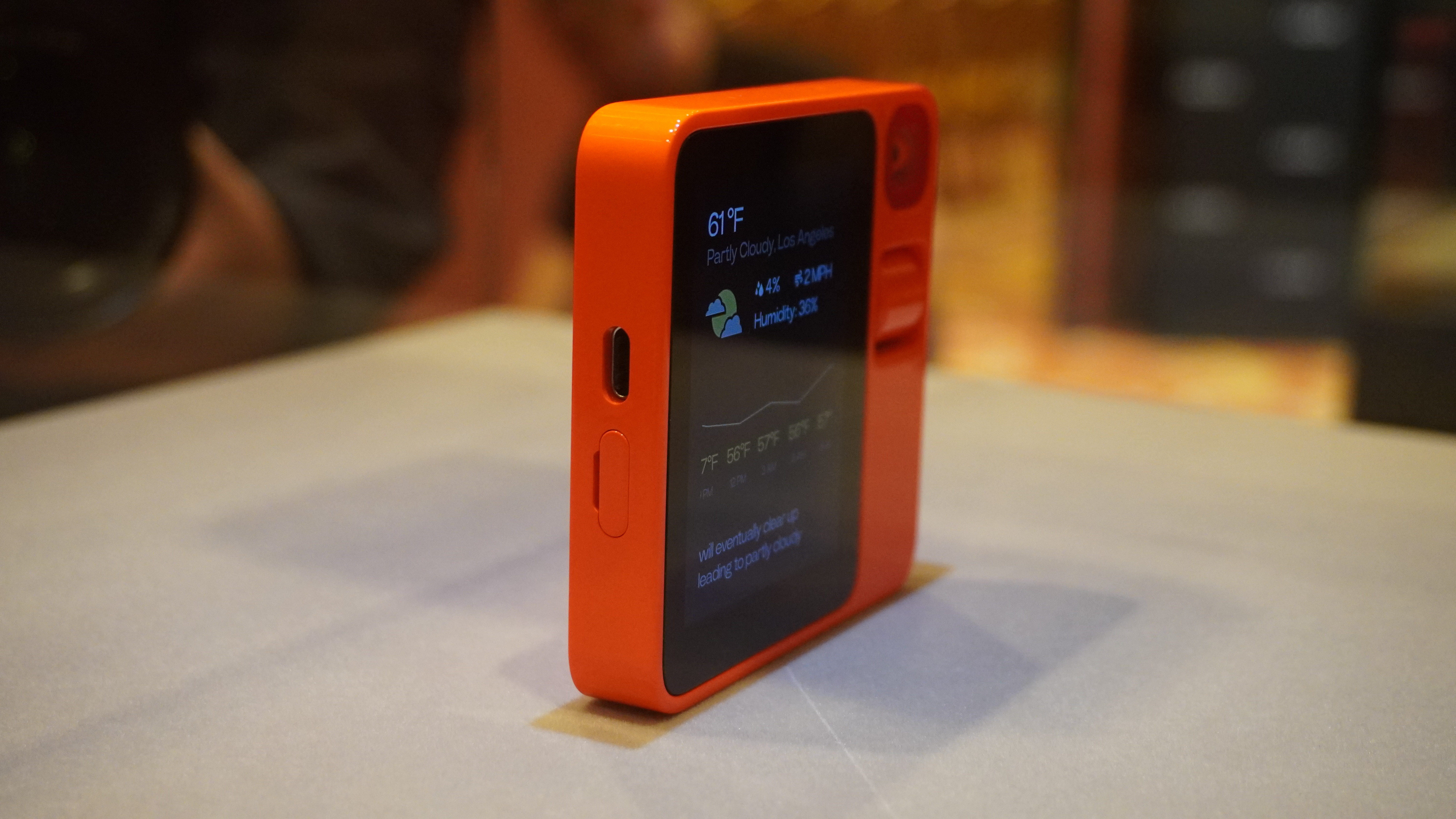
I’ve been spending the past couple hours trying to figure out where I last saw something like the Rabbit R1 before. Because sure, when it comes to its capabilities, this is hardware design being driven by the software capabilities. Teenage Engineering, which put together the design, ran with this idea to make a fun-yet-utilitarian aesthetic.
But then it struck me — this looks just like my Playdate in that it's a friendly square of technological capabilities. But Rabbit is doing several more things here, for sure. First off, there is an LCD display up front that does a decent job of presenting the simplistic user interface for your complex commands (more on those later). Next, there is a camera (megapixel count unknown at this point) which is attached to a cylinder — prime for rotating to get either rear facing pictures or selfies.
And finally, the physical controls to either scroll through interactions with Rabbit OS, and a push-to-talk button that makes this device feel sort of like holding a walkie-talkie up to say your request.
There are some compromises to keep that price down — the shiny plastic is a pure fingerprint magnet, the speaker round back is pretty tinny, and the SIM card tray supports only 4G LTE speeds (which raises the question of how fast AI requests will run over data speeds like this).
But they can be easily forgiven for the price. Put simply, this all makes the quite frankly jaw dropping assistance it can provide feel more friendly and approachable.
Rabbit R1: AI
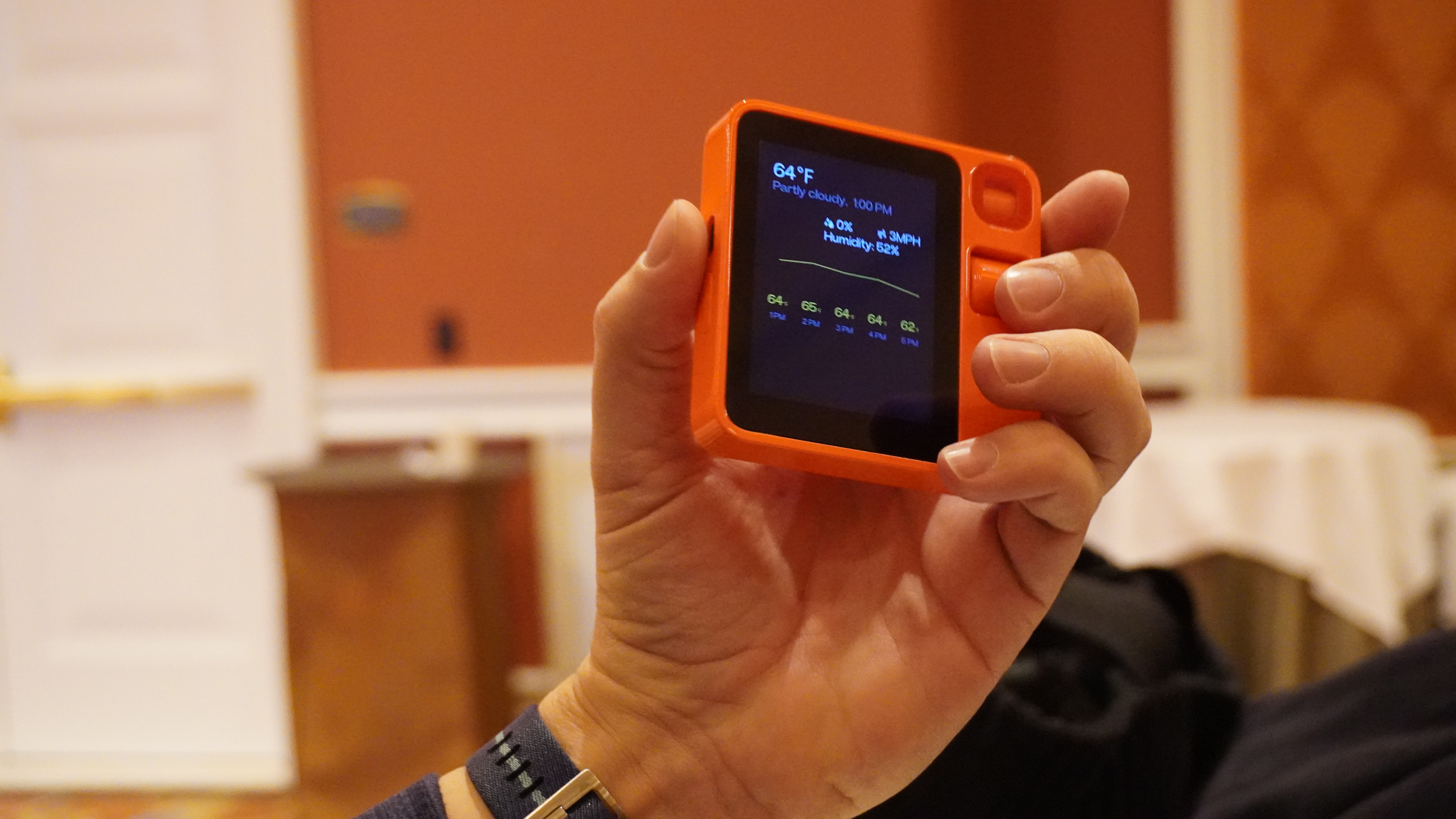
As I mentioned above, this is not your standard LLM-stuffed device like the many, many gadgets you’re seeing announced at CES 2024. Instead, the Rabbit OS you find inside the R1 brings something entirely new and all-the-more actionable to the table.
The Large Action Model works almost similarly to an LLM, but rather than learning from a database of words, it is learning from actions humans can take on websites and apps — such as ordering food, booking an Uber or even super complex processes.
For example, in the demo we saw shows the R1 pull off some incredible feats. (All of it was filmed live with no cutaways or time jumps.) First of all, making an itinerary for your holiday is quite a regular LLM action nowadays, but in tandem with the LAM, the R1 is able to make the flight and accommodation reservations for you. It’s that extra step that genuinely makes AI helpful.
The camera is also used in Rabbit’s actionable AI responses. Point it at a fridge and ask for a healthy recipe, and the R1 is able to respond with a recommendation. Most impressive for workers looking to streamline their processes (such as yours truly), is the option to show it a document (like a spreadsheet in the demo), and ask it to add data/customize it.
I was floored by the sight of this, and you receive the edited document in your email, which you can respond to with more requests that Rabbit’s AI will get to work on. All of this is made possible by connecting your various services to a Rabbit account, and the company promises all data remains private to you and anonymized to the business.
Rabbit R1: Outlook
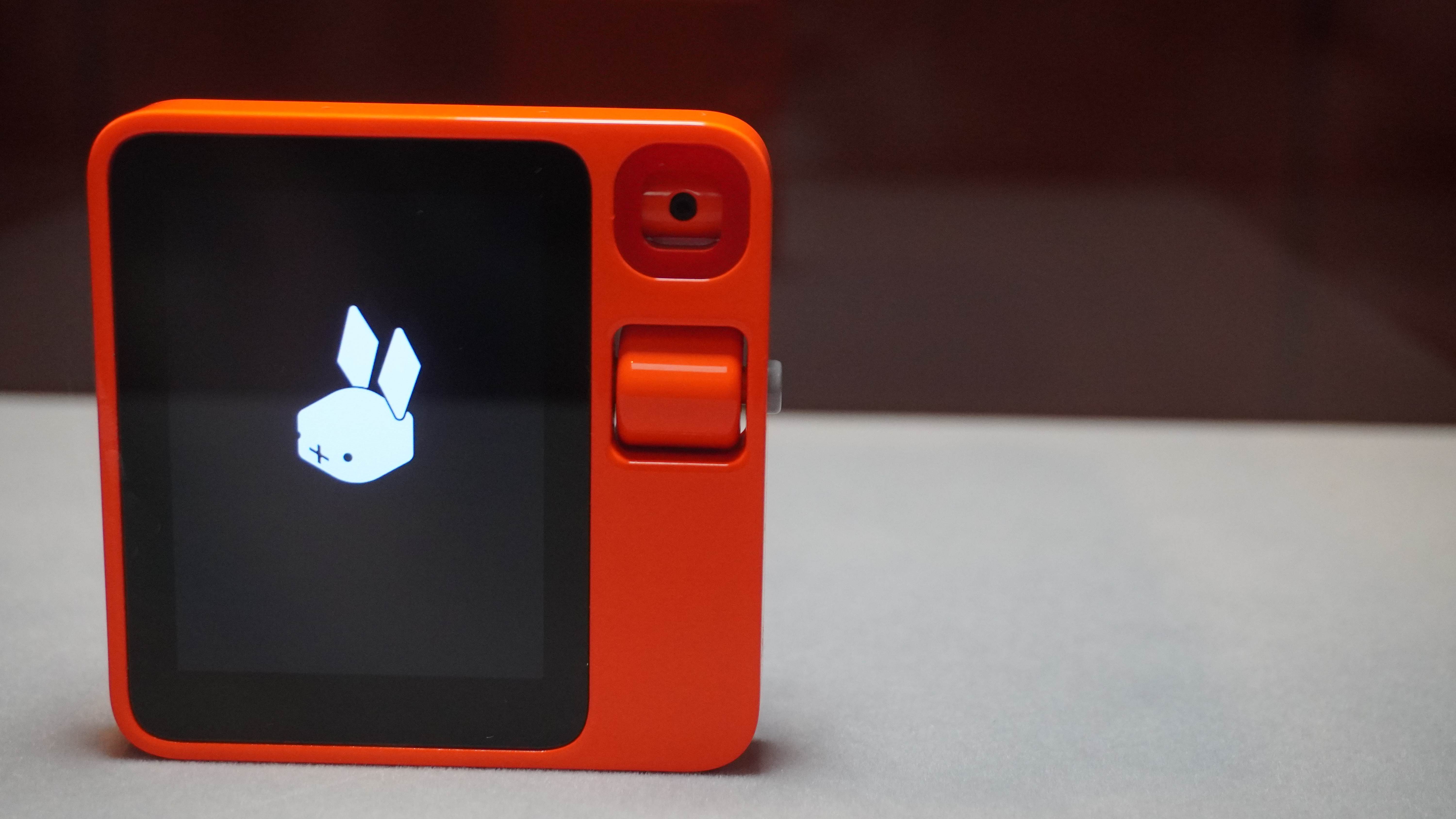
The Rabbit R1 is not built to replace your smartphone, but I wouldn’t be surprised if it becomes a handset substitute. This is a breakthrough product that I never knew I needed until I held one in my hands.
Of course, we have questions about the battery life and what the whole experience will be like using this device. A smartphone may be a time waster rather than time saver, but people enjoy that — whether it’s doom-scrolling TikTok or laughing way too much at that particularly spicy subreddit.
That’s why the Rabbit can exist alongside your slab of (probably) glass and metal — especially at such a low price. With the R1, Rabbit is inviting us all along on its journey to figure out exactly how this hardware will be used in the future, and I couldn’t be more excited to join the AI-driven conga line.
Check out our CES 2024 hub for all the latest news from the show as it happens. Follow the Tom’s Guide team in Las Vegas as we cover everything AI, as well as the best new TVs, laptops, fitness gear, wearables and smart home gadgets at the show.
And be sure to check out the Tom's Guide TikTok channel for all the newest videos from CES!







